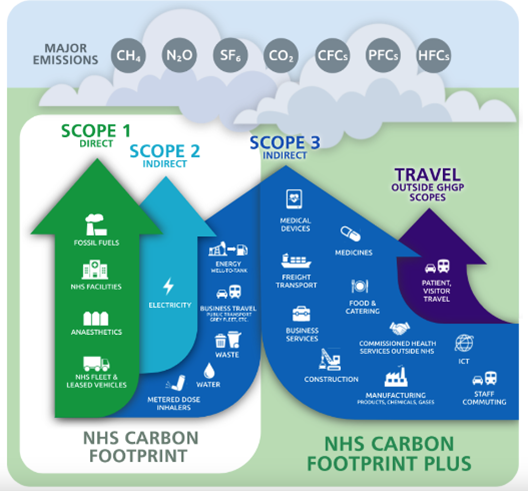Background (from the SurPlus protocol by Dr Caroline Zangani and Nurse Abigail Stewart)

The impact of climate change is becoming more prominent in everyday life.
In 2015, during the Climate Change Conference (COP-21), the United Nations (UN) started the transition to net-zero emission .
To achieve the net-zero by 2050, a series of political, behavioural, and cultural changes are needed at both national and local levels .
In the UK, the NHS has started the Greener NHS campaign asking each Trust to develop a Green Plan to become a net-zero health service by 2045. To do this, the areas of intervention should include a reduction of the carbon footprint, energy consumption and waste production.
Healthcare services often use inefficient supply chains which can represent up to 40% of the hospital total expenses. The imbalance between the number of purchased supplies and the actual usage leads to an increment in the waste of unused and expired items. Although some reports have highlighted how research management (e.g., wrong recruitment prediction, delay in obtaining approvals, inefficient production strategy) could contribute to the waste of medicinal products in research [cit.], its impact on items and supplies waste has not been thoroughly studied.
This project aims to quantify and compare the total amount of supply waste before and after implementing behavioural changes promoting sustainability and repurposing in research practice.
SurPlus
This project is exploring ways of reducing waste generated by research studies at the NIHR Oxford Health Clinical Research Facility. We are testing a new way of working to see if it can help us use supplies more efficiently.
The plan involves:
- Working with other organisations to donate leftover or expired supplies.
- Encouraging researchers to plan for using fewer supplies in the first place.
- Sharing information with other research facilities about how to be more sustainable.
This project aims to help research be more environmentally friendly and cost-effective.
Resources:
The OHCRF sustainability team are tracking how much waste is produced before and after implementing these changes. We will also look at the potential cost savings and what factors might influence how much waste a study generates.
Further info about NHS sustainability and green planning can be found at NHS England.
